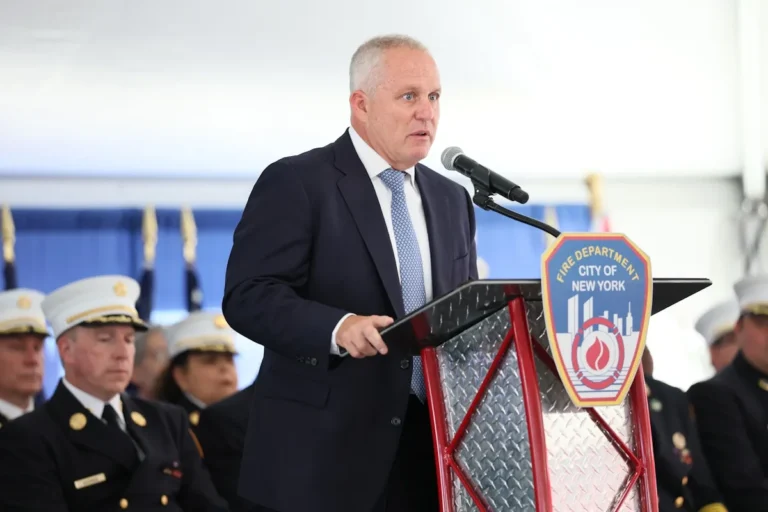Outgoing New York City Fire Department Commissioner Robert Tucker said ideological differences with Mayor-elect Zohran Mamdani influenced his decision to step down.
Tucker, who was appointed in August 2024, announced his resignation the day after Mamdani won the mayoral election. In his first interview since leaving the post, Tucker described the decision as the right moment to depart despite leaving some unfinished work.
“I don’t want to leave as much unfinished business as I am leaving, but I thought it was the right time to depart,” Tucker told CBS News. He added, “Ideologically, there’s no doubt that the mayor and I disagree on some very fundamental things to me.”
Tucker emphasized that his identity as a Jewish New Yorker shaped his perspective on public service and his approach to leadership. He suggested that Mamdani will need to earn the trust and support of first responders, a group crucial to the city’s safety and emergency response system.
The commissioner’s departure comes as New York City prepares for a transition in leadership. Tucker’s tenure was brief but marked by efforts to address key operational issues within the fire department and maintain morale among firefighters.
While Tucker did not elaborate on the specific ideological disagreements, his comments indicate that policy direction and administrative priorities under the incoming mayor may diverge from his own views.
Mamdani, who won the election with broad support from progressive voters, has promised changes across city departments. First responders, however, remain cautious about how the new administration’s policies will affect emergency services and operational efficiency.
Tucker’s resignation highlights the challenges new city leadership faces when transitioning authority and reconciling differing viewpoints with established department heads. The fire department will now enter a period of adjustment as interim leadership takes over until a permanent replacement is appointed.
In his interview, Tucker expressed hope for continued cooperation between city officials and first responders, emphasizing that maintaining strong support for those on the front lines remains vital.
Observers note that such resignations are not uncommon during mayoral transitions, particularly when incoming administrations propose policy changes that conflict with the perspectives of current agency leaders. Tucker’s candid acknowledgment of ideological differences underscores the broader debate over city management priorities and public safety.
As the city prepares for Mamdani’s administration, attention will turn to his appointments for key leadership roles, including the next FDNY commissioner. Officials and civic groups alike will monitor how these changes affect emergency preparedness and service delivery in one of the nation’s largest cities.
Tucker’s departure leaves questions about the fire department’s strategic direction, but his focus on supporting first responders signals an ongoing commitment to the workforce he led. Mamdani’s team faces the task of balancing reform with continuity, ensuring that the city’s fire safety operations remain effective during the transition.







